

Paving stones have to withstand a lot and therefore need regular care. We show you how to clean the paving stones properly and which products are suitable for this.
Paving stones have to withstand a lot. It’s not just rain and the weather in general that get to them. Weeds and leaves grow between the joints, objects fall on the paving stones and liquids leak out. To keep driveways, patios and paths looking well-kept, it is important that you clean them properly.
The degree to which paving stones become dirty depends on their location and type. On dark or textured surfaces, stains and dirt are less noticeable than on light and uniform ones. If the paving stones are in a sunny place, green deposits hardly spread. They attack stones in damp and windless places. Lichens, on the other hand, can occur anywhere.
Best Pressure Washers for Block Paving
In this guide, I reviewed the 5 Best Pressure Washers for Block Paving. I compared water pressure, machine weight, flow and cost to give you my best recommendations.
Pressure Washers for Block Paving in UK
The Karcher K7 Premium Full Control Plus Home Pressure Washer is a high-performance cleaning machine that delivers exceptional power and versatility. With its impressive maximum pressure of 180 Bars, it can handle the toughest cleaning tasks with ease. The included T 450 surface cleaner and stone and facade detergent provide efficient cleaning solutions for large areas and stubborn stains. While the weight and cord length may pose some limitations, the K7 Premium is a reliable and powerful pressure washer that is ideal for homeowners seeking professional-grade cleaning performance.
The Kärcher K 5 Premium Smart Control Home High Pressure Washer offers exceptional cleaning performance and convenience. With its adjustable pressure, high flow rate, and comprehensive accessories, it tackles dirt and grime effectively on a variety of surfaces. The smart control technology and included accessories, such as the T 5 surface cleaner and 3-in-1 cleaner, enhance its versatility and cleaning capabilities. While the weight and sound level may be considerations for some users, the overall performance and features make it a reliable and efficient cleaning tool. With a 3-year guarantee, you can have confidence in the durability and longevity of this pressure washer.
The Bosch High Pressure Washer UniversalAquatak 135 boasts a powerful 1900 W motor, delivering exceptional cleaning power for even the toughest cleaning challenges. With a maximum pressure of 135 bar, this pressure washer effortlessly removes stubborn dirt and grime from a wide range of surfaces, including patios, driveways, vehicles, and more.
The Nilfisk Core 130 Bar High Pressure Washer is a reliable and versatile cleaning tool suitable for a range of applications. With its powerful motor, ample pressure, and efficient water flow rate, it effectively tackles dirt and grime, providing satisfactory cleaning results. While the hose length could be improved for more extensive cleaning projects, the lightweight design and ease of use make this pressure washer a valuable asset for both residential and outdoor cleaning tasks.
If you’re in the market for a reliable and efficient high-pressure washer, the Hyundai HYW3100P2 Petrol Pressure Washer is an excellent choice. Its powerful 3100 PSI bar pressure, long hose, and high flow rate make it capable of tackling even the toughest cleaning tasks with ease. Although it may be more expensive to operate than an electric-powered pressure washer, its petrol engine provides the freedom to clean anywhere without being tethered to a power outlet. Overall, the Hyundai HYW3100P2 Petrol Pressure Washer is a top-of-the-line machine that delivers exceptional performance and durability.
Remove loose dirt from paving stones
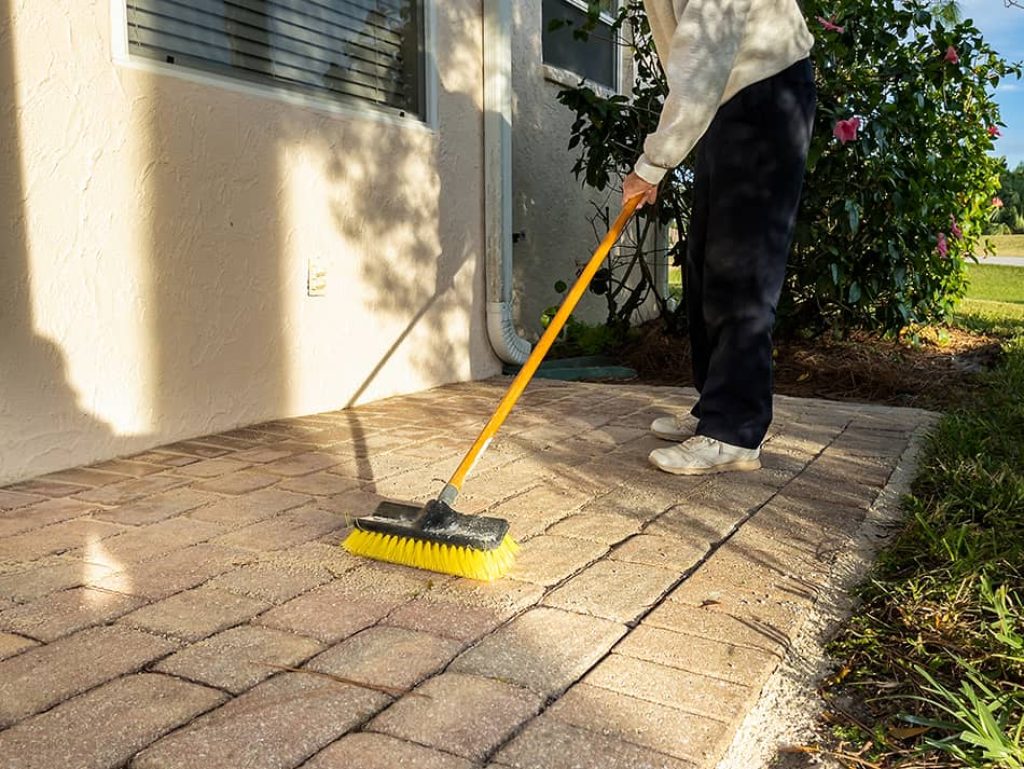
Sweep your paving stones regularly to remove coarse dirt. This is also the first step before using other cleaning products. If you do not remove soil, leaves and plant debris first, a greasy mass will form together with the liquid.
Use a street broom or witch’s broom for cleaning. A plastic leaf broom is suitable for flowers and leaves. Battery-operated sweepers make it easier for you to work on large areas.
Cleaning joints
Moss and weeds often grow in the joints between stones. Joint brushes, weed scrapers or weed burners can help. Normally, you must not use weed killers on sealed surfaces. Failure to do so can be punished with a fine.
Removing coatings, stains and discolouration from paving stones
On paving stones with porous surfaces, liquids in particular should be handled with care: they quickly soak into the material and leave stains that are usually difficult to remove. Remove fresh stains such as red wine or grease splashes as quickly as possible.
If you clean your stones only rarely, green deposits will build up. For delicate materials, you will have to do it yourself. Scrub them with cleaning agents and a brush. On more robust stones, you can get rid of them with a pressure washer.
Cleaning paving stones with a pressure washer
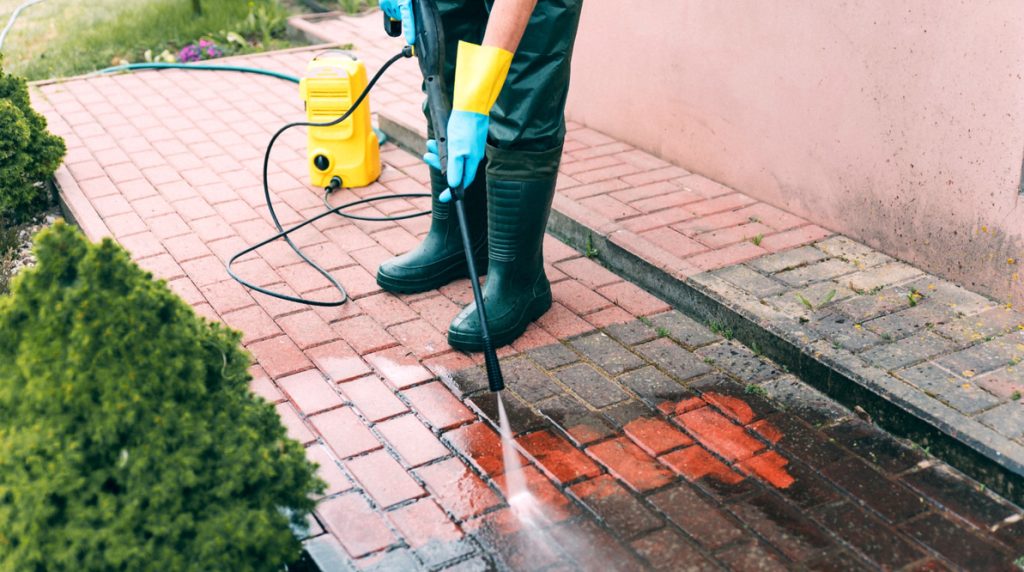
Using a pressure washer is easy on the back and saves water. Biodegradable cleaning agents are available for heavy soiling and deposits. Some devices mix these directly into the water.
However, pressure washers also have a disadvantage. If you spray the joints with it, the dirt is spread over the entire surface. Even windows and house walls may get dirty and you will have to clean even more if you don’t use it properly. To avoid this, always direct the water jet away from the house wall. If necessary, lower the pressure a little.
Excessive water pressure can damage the surfaces of some stones, including concrete stones. Hard natural stones such as basalt, granite and quartzite cope much better. Before using a pressure washer, find out whether the stones can withstand the treatment. Even if you use a dirt cutter, caution and distance are important.
Cleaning concrete and natural stone paving stones
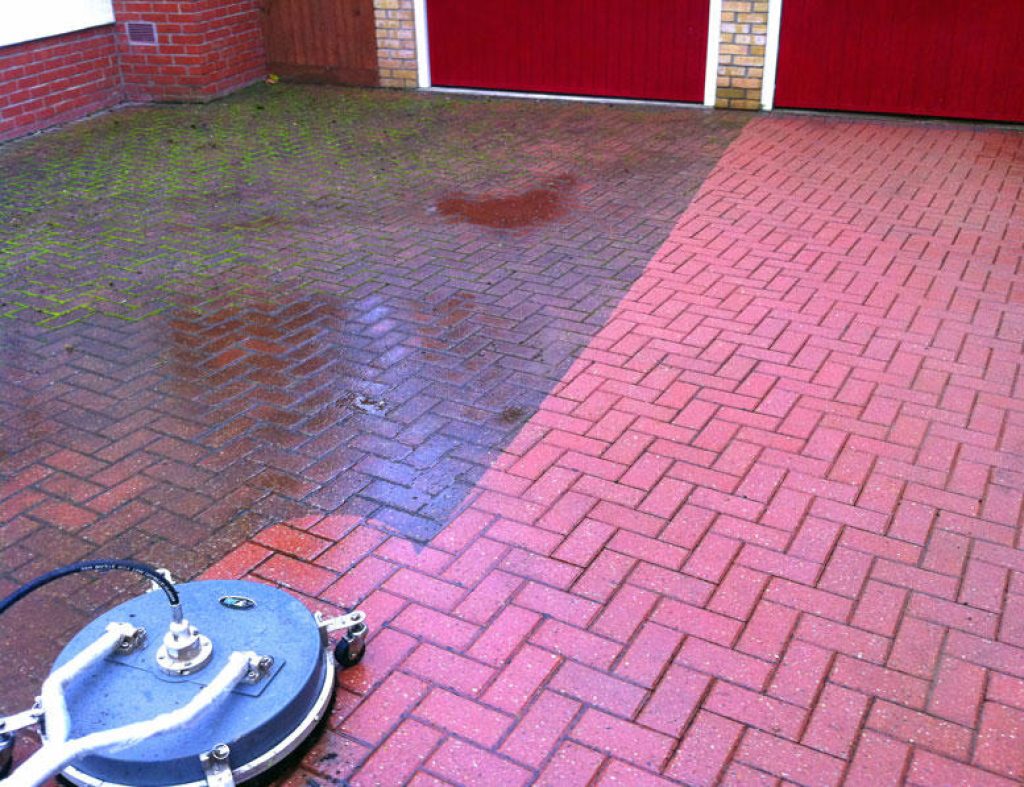
If water and mechanical cleaning alone are not enough, you can use special products for natural stones and concrete. Use these only for the appropriate type of stone. If in doubt, test them first on an inconspicuous spot. This will tell you whether the material is discoloured or not.
The application differs depending on the type. Make sure to sweep the stones thoroughly before using cleaners. Most cleaners are applied directly to the paving stones. Then spread it with a brush and work it in well. Let it work and dry according to the manufacturer’s instructions. Finally, rinse with water. Sweep away some cleaners with a broom.
The right cleaner for the right dirt
Use solvent-based cleaners to treat paint stains, resin, alkali, grease and everyday stains. Cement residue and rust stains can be treated with acidic cleaners.
Cleaners containing acids and surfactants are unsuitable for natural stones such as granite, marble or sandstone. They attack the surface. For sandstone, it is better to use warm water and neutral soap or special natural stone cleaners or stone oil.
Only use special cleaners against lichen. High-pressure cleaners and green coat removers do not help here.
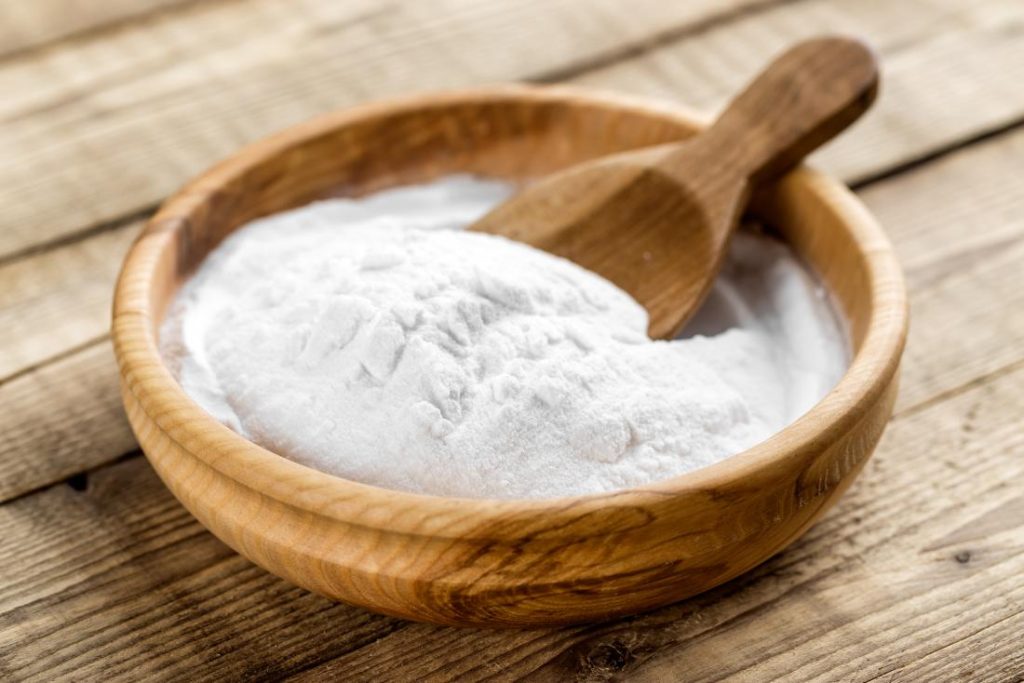
Cleaning concrete blocks with soda
Soda is an all-rounder in the household. You can also clean acid-sensitive paving stones with sodium carbonate. To do this, add about 100 grams of soda to 10 litres of hot water. Spread the mixture over the stones. Use a broom or rubber scraper. For your own safety, wear protective goggles. Leave the soda water to soak for five to six hours. Finally, wash the mixture off with clean water.
Cleaning sealed paving stones
Sealed or impregnated paving stones are easier to clean than untreated stones. The sealant prevents the surface from becoming dirty quickly. Use water and a little neutral detergent to wipe away dirt. Do not use a pressure washer, as it may damage the seal.


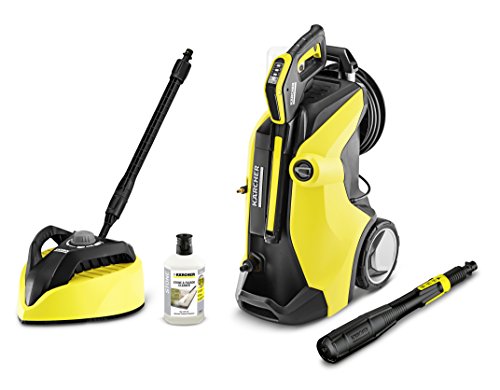
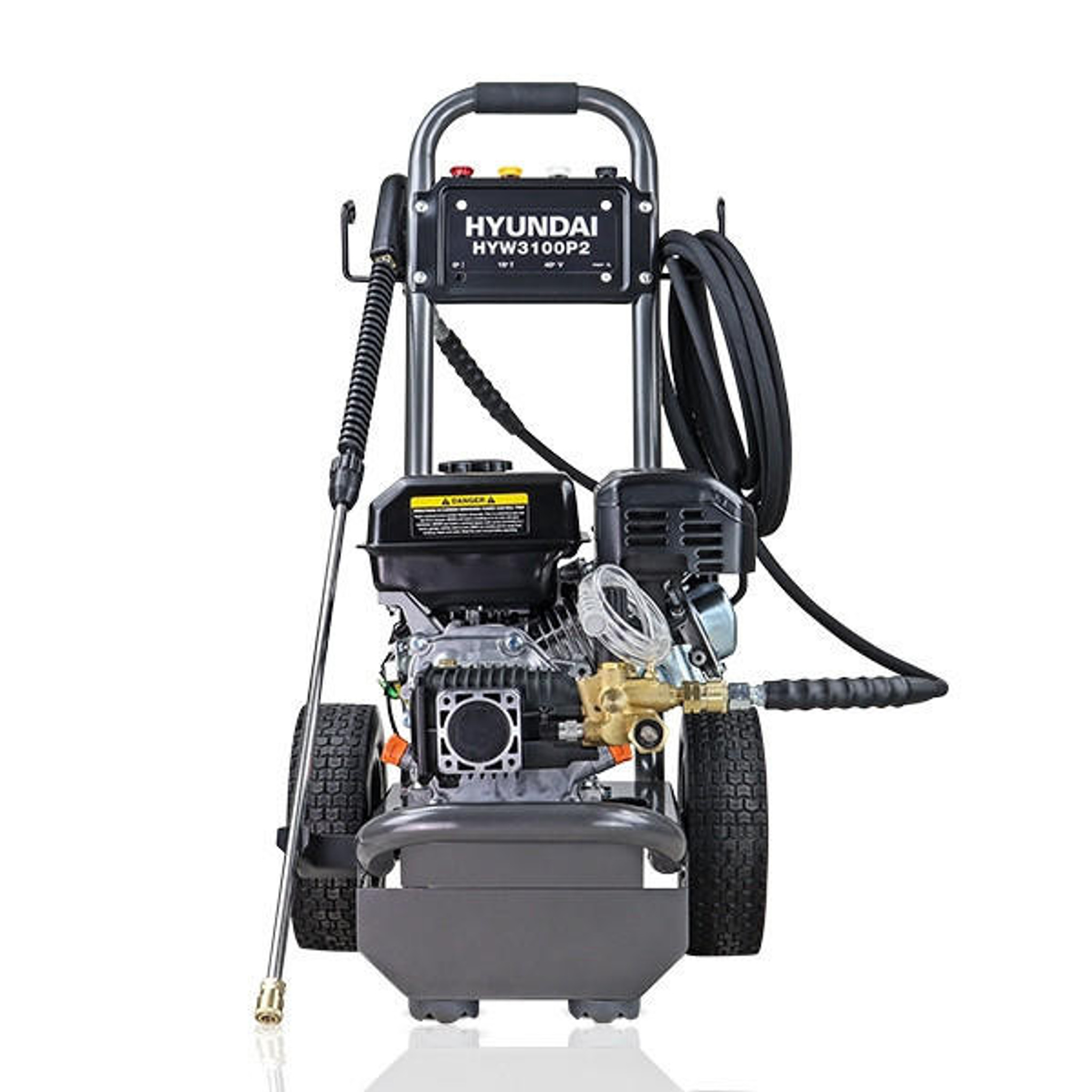
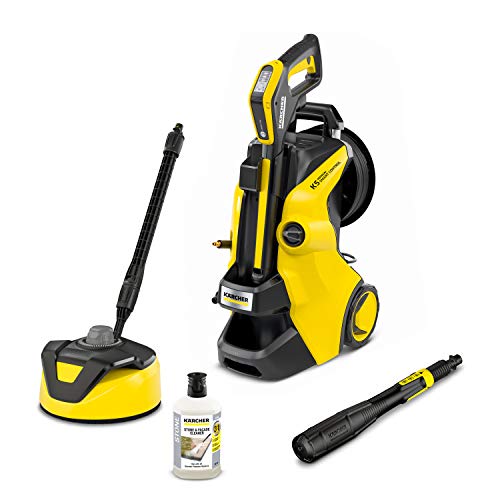
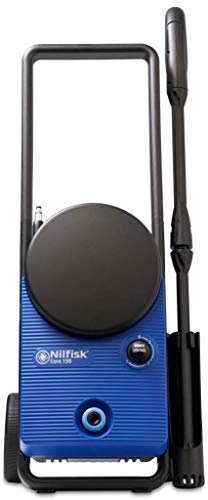
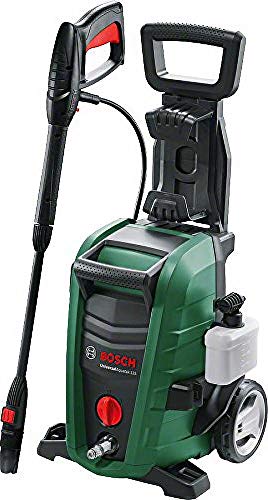
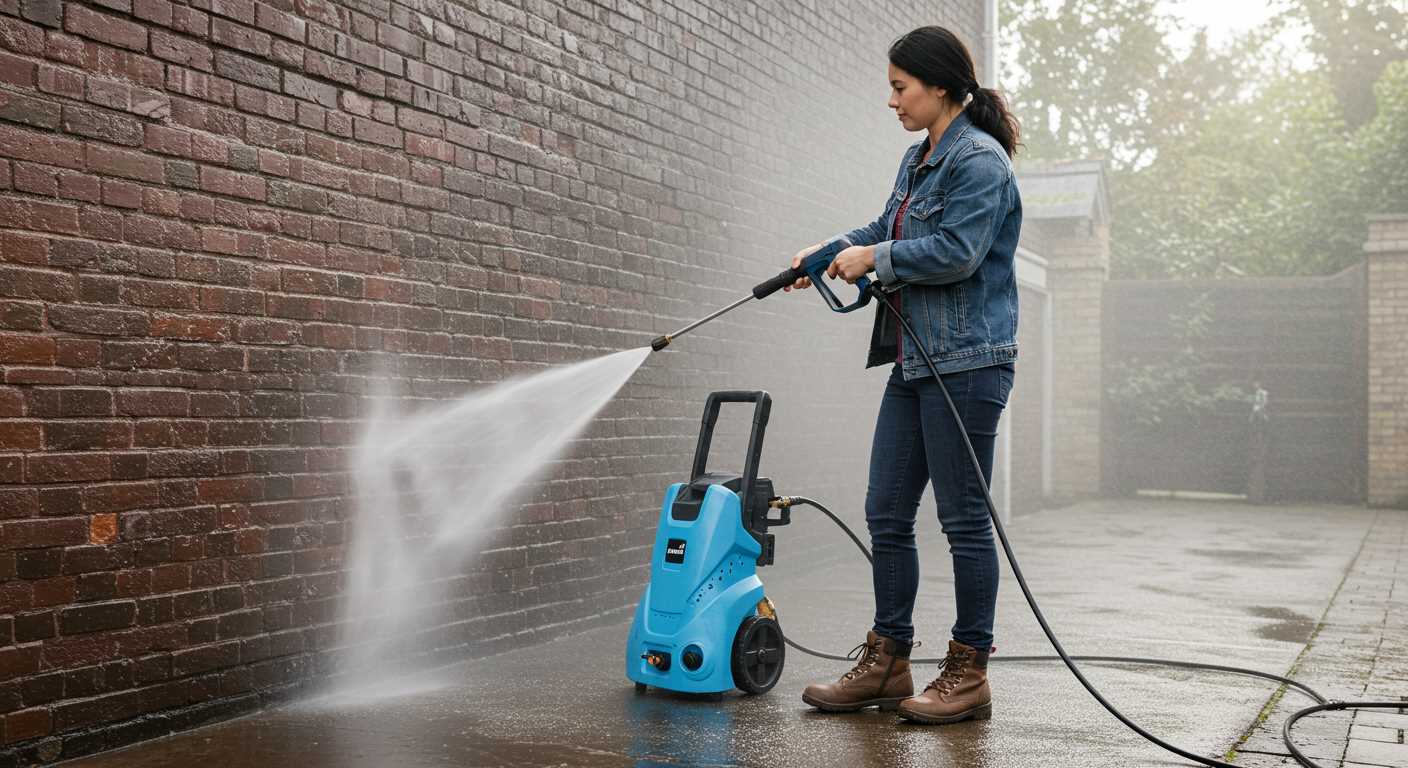
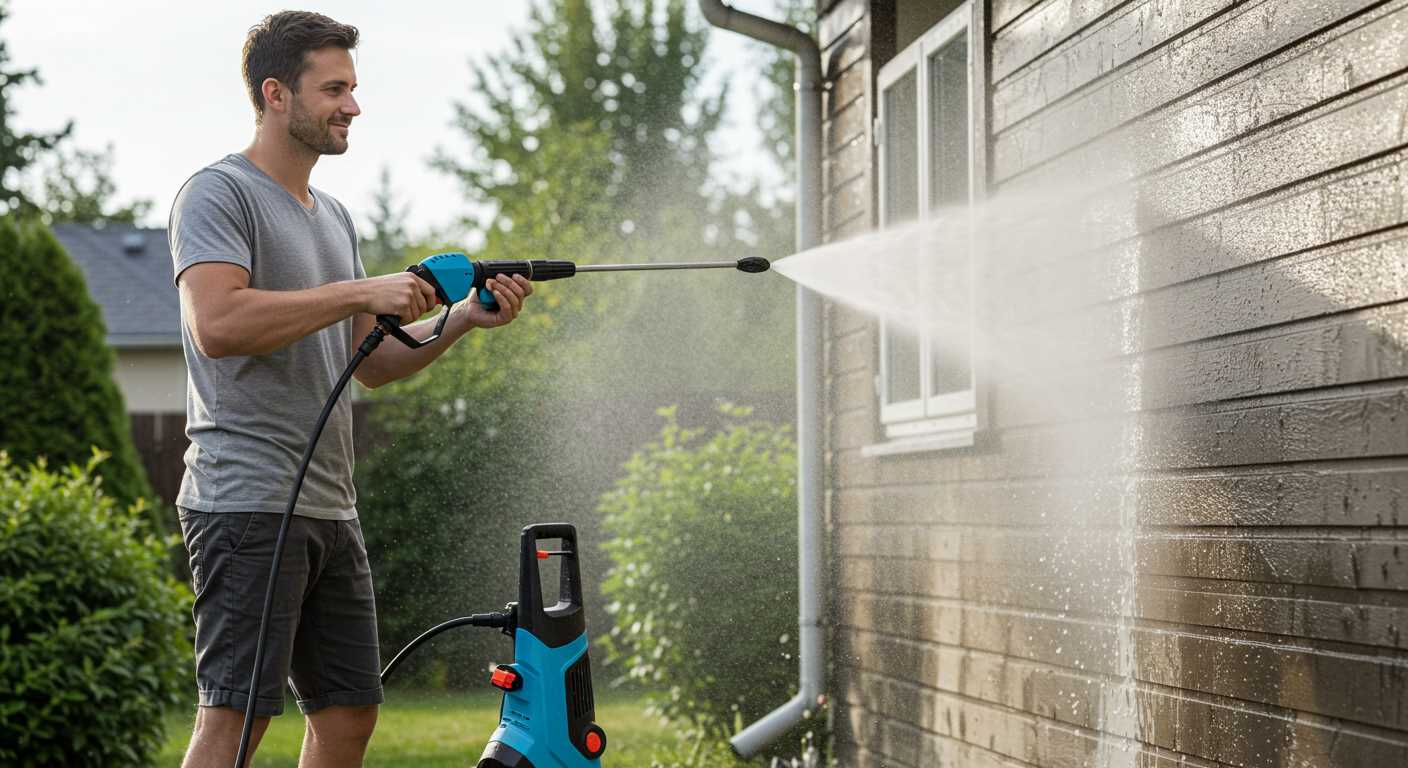
.jpg)


